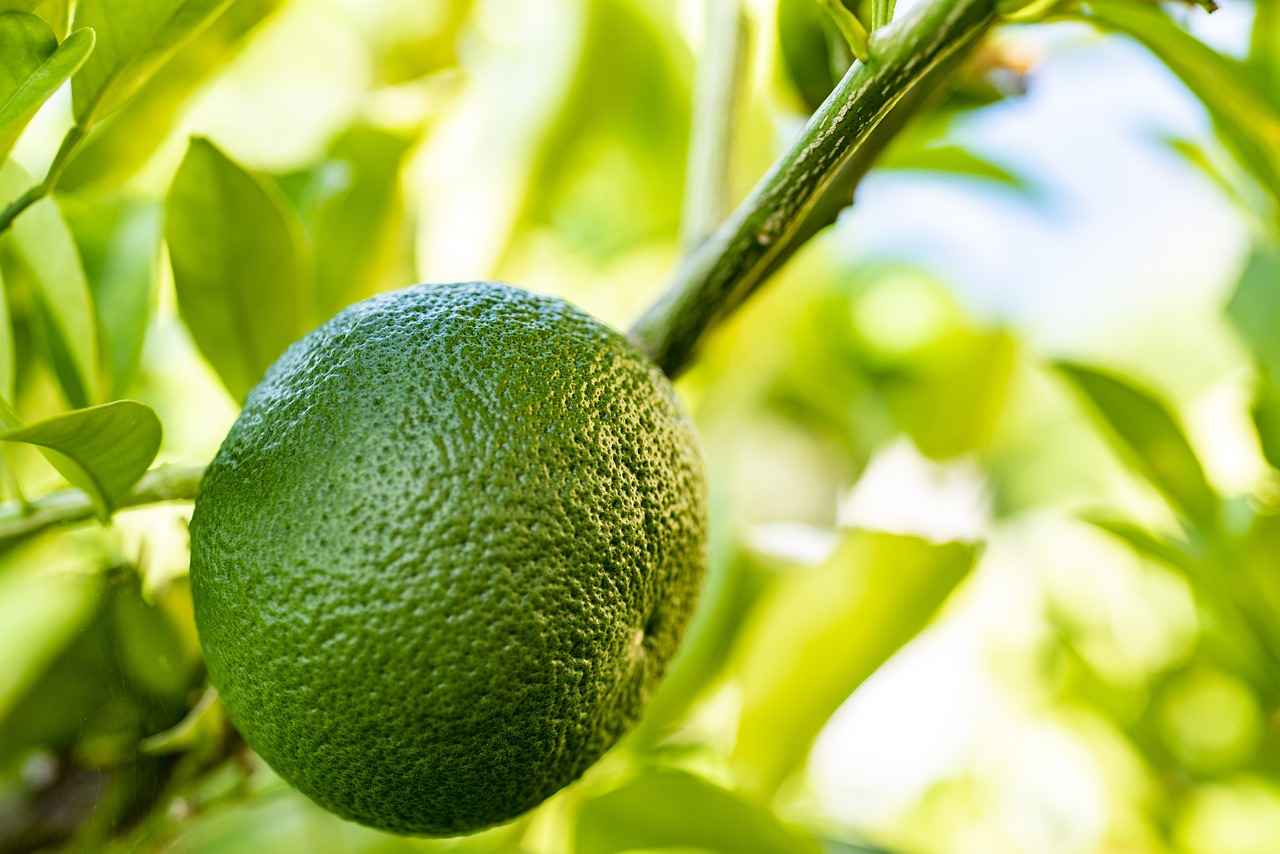This article delves into the extraordinary benefits of spirulina, a blue-green algae celebrated for its remarkable nutrient profile. Often referred to as a superfood, spirulina is recognized for its high concentration of vitamins, minerals, and proteins, making it a valuable addition to any diet.
What is Spirulina?
Spirulina is a type of cyanobacteria, commonly known as blue-green algae. It thrives in warm, alkaline waters and has been consumed for centuries due to its impressive nutritional value and various health benefits. This algae is not only a source of nutrition but also a sustainable food option that can be cultivated with minimal environmental impact.
Nutritional Profile of Spirulina
Spirulina is packed with essential nutrients, including:
- High Protein Content: Comprising approximately 60-70% protein by weight, spirulina is one of the richest plant-based protein sources available.
- Amino Acids: It contains all essential amino acids, making it a complete protein source, ideal for muscle repair and growth.
- Vitamins and Minerals: Spirulina is abundant in B vitamins, vitamin E, iron, calcium, and magnesium, which are vital for numerous bodily functions.
Health Benefits of Spirulina
Regular consumption of spirulina is linked to numerous health benefits:
- Antioxidant Properties: Spirulina contains powerful antioxidants like phycocyanin, which combat oxidative stress and inflammation.
- Boosting Immune Function: Studies suggest that spirulina enhances immune response by increasing the production of antibodies.
How to Incorporate Spirulina into Your Diet
Incorporating spirulina into your daily routine is simple:
- Spirulina Smoothies: Add spirulina powder to smoothies for an easy nutrient boost.
- Spirulina Supplements: Available in tablet or capsule form, these are convenient for those on the go.
Potential Side Effects of Spirulina
While generally safe, some individuals may experience mild side effects, such as:
- Allergic Reactions: Symptoms may include itching or difficulty breathing.
- Digestive Issues: Mild discomfort, nausea, or bloating can occur; starting with small doses is advisable.
Conclusion: The Superfood of the Future
With its impressive nutrient density and myriad health benefits, spirulina is a superfood worth considering. Its versatility and ease of incorporation into various diets highlight its potential as a staple for health-conscious individuals.
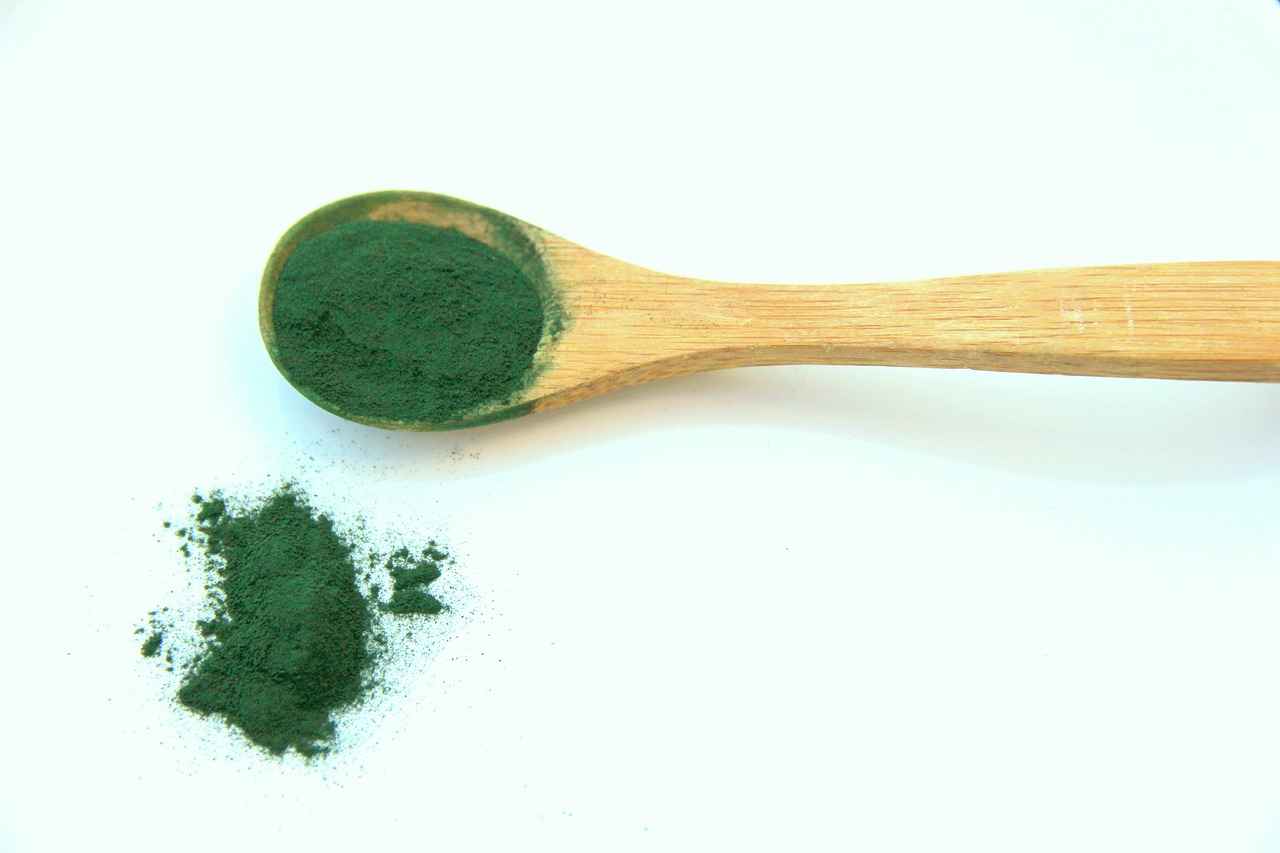
What is Spirulina?
Spirulina is a remarkable type of cyanobacteria, commonly known as blue-green algae, that flourishes in warm, alkaline waters around the globe. This nutrient-dense superfood has been consumed for centuries, dating back to ancient civilizations such as the Aztecs and the Kanembu people of Chad, who valued its high nutritional content and health benefits.
Spirulina is characterized by its vibrant blue-green color, which comes from its rich content of phycocyanin, a pigment with potent antioxidant properties. This algae thrives in environments where few other organisms can survive, showcasing its resilience and adaptability.
One of the most compelling aspects of spirulina is its impressive nutritional profile. It is packed with essential nutrients, including:
- Proteins: Comprising approximately 60-70% protein by weight, spirulina is one of the richest plant-based protein sources available.
- Amino Acids: It contains all essential amino acids, making it a complete protein source ideal for muscle repair and growth.
- Vitamins: Spirulina is abundant in vitamins such as B1 (thiamine), B2 (riboflavin), B3 (niacin), and E, which are crucial for energy metabolism and overall health.
- Minerals: It also provides essential minerals like iron, calcium, and magnesium, necessary for various bodily functions.
In addition to its nutritional benefits, spirulina is recognized for its potential health advantages. Regular consumption may enhance immune function, improve gut health, and support cardiovascular health. Its powerful antioxidants, particularly phycocyanin, help combat oxidative stress and inflammation in the body.
Incorporating spirulina into your diet can be easy and enjoyable. It can be added to smoothies, juices, or even used in energy bars for a nutrient boost. For those seeking convenience, spirulina is also available in tablet or capsule form.
In conclusion, spirulina is more than just a supplement; it is a superfood that offers a plethora of health benefits and nutritional value. Its versatility and ease of incorporation into various diets make it a valuable addition for anyone looking to enhance their overall health.
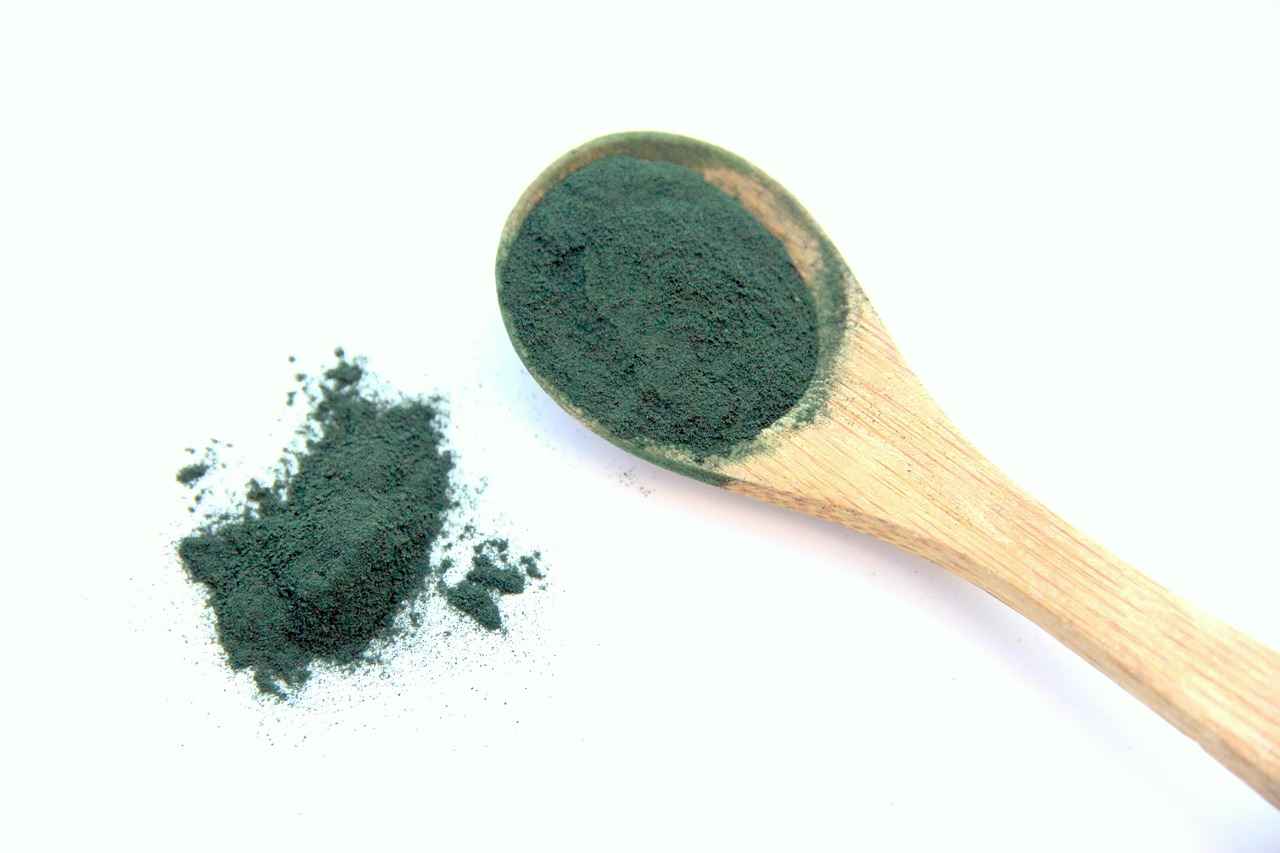
Nutritional Profile of Spirulina
Spirulina is often hailed as one of the most nutrient-dense foods on the planet, and for good reason. This blue-green algae is packed with an array of essential nutrients that contribute to overall health and wellness. In this section, we will delve into the , highlighting its impressive components and the benefits they offer.
Spirulina is a powerhouse of nutrition, containing a rich blend of proteins, vitamins, and minerals. Its unique composition makes it a valuable dietary supplement for individuals seeking to enhance their health.
| Nutrient | Amount per 100g |
|---|---|
| Protein | 60-70g |
| Vitamin B1 (Thiamine) | 2.0 mg |
| Vitamin B2 (Riboflavin) | 3.7 mg |
| Vitamin B3 (Niacin) | 12.0 mg |
| Iron | 28.5 mg |
| Calcium | 120 mg |
| Magnesium | 195 mg |
One of the standout features of spirulina is its high protein content, which comprises approximately 60-70% of its dry weight. This makes spirulina an excellent protein source, especially for those following plant-based diets. Additionally, spirulina contains all essential amino acids, making it a complete protein source, which is vital for muscle repair and growth.
Moreover, spirulina is rich in antioxidants, including phycocyanin, which contributes to its vibrant blue-green color. These antioxidants help combat oxidative stress and inflammation in the body, promoting overall health and longevity.
In terms of vitamins and minerals, spirulina boasts an impressive array of nutrients. It is particularly high in B vitamins, which are essential for energy metabolism and overall health. Additionally, it contains significant amounts of iron, calcium, and magnesium, which play crucial roles in various bodily functions.
In conclusion, the highlights its status as a superfood. With its rich content of proteins, vitamins, and minerals, spirulina is an excellent addition to a balanced diet, offering numerous health benefits and supporting overall wellness.
Protein Content
Protein Content in Spirulina
Spirulina, a remarkable blue-green algae, is celebrated for its exceptional protein content, comprising approximately 60-70% of its weight. This makes it one of the richest sources of plant-based protein available today. For those following vegetarian or vegan diets, spirulina offers a valuable alternative to traditional protein sources.
One of the standout features of spirulina is that it contains all essential amino acids, which are vital for various bodily functions, including muscle repair and growth. Unlike many plant-based proteins, which may lack one or more essential amino acids, spirulina provides a complete protein profile, making it an excellent choice for athletes and fitness enthusiasts.
In comparison to other protein sources, spirulina stands out not only for its high protein content but also for its digestibility. Studies have shown that the protein in spirulina is more easily absorbed by the body than that from many animal sources. This means that individuals consuming spirulina can benefit from its protein content without the additional fats or calories often associated with meat products.
| Protein Source | Protein Content (per 100g) | Digestibility |
|---|---|---|
| Spirulina | 60-70g | High |
| Chicken Breast | 31g | Moderate |
| Tofu | 8g | Moderate |
Incorporating spirulina into your diet can be simple and enjoyable. Whether added to smoothies, juices, or energy bars, its versatility makes it an easy addition to any meal. This not only enhances the nutritional value of your food but also provides a significant protein boost.
In conclusion, spirulina’s impressive protein content and complete amino acid profile make it a superfood worth considering for anyone looking to improve their dietary protein intake. Its benefits extend beyond mere nutrition, contributing to overall health and wellness.
Amino Acids in Spirulina
Spirulina, a remarkable blue-green algae, is not only celebrated for its vibrant color but also for its impressive nutritional profile. One of the standout features of spirulina is its complete protein content, which includes all nine essential amino acids required for human health.
What are Essential Amino Acids?
Essential amino acids are those that the body cannot synthesize on its own and must be obtained through diet. These amino acids play critical roles in various bodily functions, including:
- Muscle Repair: Essential for recovery after exercise.
- Protein Synthesis: Vital for creating new proteins in the body.
- Hormone Production: Involved in the synthesis of hormones that regulate metabolism and growth.
Benefits for Athletes and Fitness Enthusiasts
For athletes and those looking to build muscle, spirulina offers a convenient and effective source of protein. Its high digestibility means that the body can quickly utilize the amino acids for muscle repair and growth. This makes spirulina an excellent addition to a post-workout recovery meal or shake.
Comparison with Other Protein Sources
When compared to traditional protein sources like meat, dairy, or even soy, spirulina has several advantages:
- Plant-Based: Ideal for vegetarians and vegans.
- Nutrient-Dense: Provides a wide range of vitamins and minerals alongside protein.
- Low in Calories: Offers a protein boost without excessive caloric intake.
Incorporating Spirulina into Your Diet
Integrating spirulina into your meals can be simple. It can be added to smoothies, salads, or even baked goods, giving you a nutritious boost without altering the flavor significantly.
Conclusion
In summary, spirulina is a powerhouse of essential amino acids that supports muscle repair and growth. Its unique benefits make it a valuable addition to the diets of athletes and anyone looking to enhance their protein intake naturally.
Comparison to Other Protein Sources
When discussing protein sources, spirulina emerges as a remarkable contender, especially when compared to traditional options like meat and soy. One of the standout features of spirulina is its high digestibility. Unlike some protein sources that may be harder for the body to break down, spirulina is easily absorbed, making it an excellent choice for those seeking efficient nutrient intake.
Furthermore, spirulina offers a unique nutrient density that is hard to match. With approximately 60-70% protein by weight, it provides a complete amino acid profile, essential for muscle repair and overall health. In contrast, while meat is a rich source of protein, it often comes with higher levels of saturated fats and cholesterol, which can be detrimental to heart health when consumed in excess.
Moreover, soy, another popular plant-based protein, contains anti-nutrients that can inhibit protein absorption and may cause digestive discomfort for some individuals. Spirulina, on the other hand, is free from such concerns, making it a more digestive-friendly option.
| Protein Source | Protein Content (%) | Digestibility | Complete Amino Acids |
|---|---|---|---|
| Spirulina | 60-70 | High | Yes |
| Meat | 25-30 | Moderate | Yes |
| Soy | 36-40 | Moderate | Partial |
In summary, spirulina not only offers a potent source of protein but also does so in a way that is nutritionally advantageous and easy on the digestive system. For those looking to diversify their protein intake, spirulina presents a compelling alternative that supports health and wellness.
Vitamins and Minerals
Spirulina is not just a trendy superfood; it is a powerhouse of essential vitamins and minerals that contribute to overall health and well-being. This blue-green algae is packed with a variety of nutrients that play crucial roles in numerous bodily functions. Let’s explore some of the most significant vitamins and minerals found in spirulina and their benefits.
| Nutrient | Function | Health Benefits |
|---|---|---|
| Vitamin B1 (Thiamine) | Helps convert carbohydrates into energy. | Supports brain function and improves mood. |
| Vitamin B2 (Riboflavin) | Essential for energy production and cellular function. | Promotes healthy skin and eyes. |
| Vitamin B3 (Niacin) | Supports metabolic processes and DNA repair. | Improves cholesterol levels and reduces cardiovascular risks. |
| Vitamin E | A powerful antioxidant that protects cells from damage. | Enhances immune function and skin health. |
| Iron | Crucial for the formation of hemoglobin in red blood cells. | Prevents anemia and increases energy levels. |
| Calcium | Vital for bone health and muscle function. | Helps in maintaining strong bones and teeth. |
| Magnesium | Involved in over 300 biochemical reactions in the body. | Supports muscle and nerve function and regulates blood pressure. |
Incorporating spirulina into your diet can significantly boost your intake of these essential nutrients. Whether consumed in powdered form, tablets, or as part of smoothies, the benefits of spirulina are hard to ignore. Its rich nutrient profile not only supports physical health but also enhances overall vitality.
In conclusion, the vitamins and minerals found in spirulina play vital roles in maintaining a healthy body. By adding this nutrient-dense superfood to your diet, you can enjoy a range of health benefits that contribute to your overall wellness.
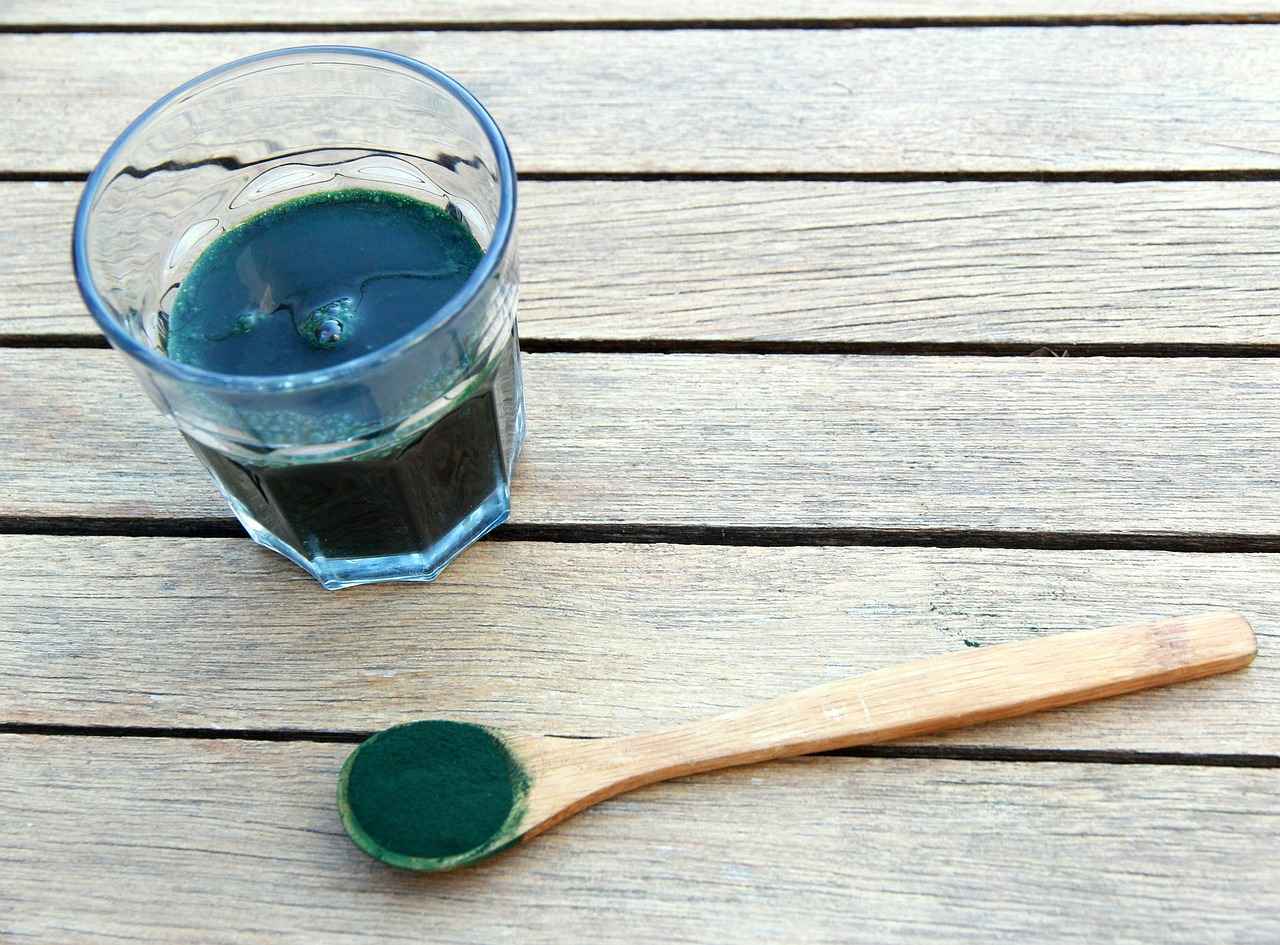
Health Benefits of Spirulina
Spirulina, a blue-green algae, is not only a nutritional powerhouse but also offers a myriad of health benefits that have been recognized by health enthusiasts and researchers alike. Regular consumption of spirulina can lead to significant improvements in various aspects of health.
- Enhanced Immune Function: Spirulina is known to boost the immune system by increasing the production of antibodies and other immune cells. This enhancement helps the body effectively combat infections and diseases.
- Improved Gut Health: The presence of prebiotics in spirulina supports the growth of beneficial gut bacteria, promoting a healthy digestive system. This can lead to better nutrient absorption and overall gut function.
- Cardiovascular Health: Spirulina has been linked to lower blood cholesterol levels and improved circulation. Its antioxidant properties help reduce inflammation and oxidative stress, which are key factors in heart health.
- Weight Management: Incorporating spirulina into your diet can aid in weight management. Its high protein content promotes satiety, which may help reduce overall calorie intake.
- Energy Boost: Many users report increased energy levels after consuming spirulina. This could be attributed to its rich nutrient profile, which provides the body with essential vitamins and minerals.
In addition to these benefits, spirulina is an excellent source of antioxidants, particularly phycocyanin, which helps protect the body from oxidative damage. This can contribute to longevity and overall wellness.
In conclusion, the regular consumption of spirulina offers a range of health benefits, making it a valuable addition to any diet. Its ability to enhance immune function, improve gut health, and support cardiovascular health underscores its status as a superfood. Whether taken as a supplement or added to meals, spirulina can play a significant role in promoting a healthier lifestyle.
Antioxidant Properties
Spirulina is celebrated not only for its rich nutritional profile but also for its remarkable antioxidant properties. Among its most potent antioxidants is phycocyanin, a unique pigment that gives spirulina its vibrant blue-green color. This compound plays a crucial role in combating oxidative stress, which is a significant contributor to various health issues, including chronic diseases and aging.
Oxidative stress occurs when there is an imbalance between free radicals and antioxidants in the body. Free radicals can damage cells, proteins, and DNA, leading to inflammation and other health problems. By incorporating spirulina into your diet, you can enhance your body’s ability to neutralize these harmful free radicals. Studies have shown that phycocyanin not only reduces oxidative stress but also has anti-inflammatory effects that can further support overall health.
The benefits of spirulina extend beyond just its antioxidant content. Regular consumption has been linked to improved immune function, better cardiovascular health, and enhanced metabolic processes. This makes spirulina an excellent choice for those looking to boost their overall wellness.
In addition to phycocyanin, spirulina contains other antioxidants such as beta-carotene, vitamin E, and various flavonoids. These compounds work synergistically to provide a comprehensive defense against oxidative damage. For individuals seeking to improve their health and longevity, spirulina offers a natural and effective solution.
In conclusion, the antioxidant properties of spirulina, particularly its phycocyanin content, make it a powerful ally in the fight against oxidative stress and inflammation. By incorporating this superfood into your daily routine, you can promote better health and enhance your body’s resilience against various diseases.
Boosting Immune Function
Spirulina, a nutrient-dense blue-green algae, has garnered attention for its potential to enhance the immune system. Research indicates that spirulina may play a significant role in strengthening the body’s defenses against infections and diseases. This effect is primarily attributed to its ability to stimulate the production of antibodies and various immune cells.
One of the key components of spirulina is its rich content of phycocyanin, a potent antioxidant that not only fights oxidative stress but also promotes the proliferation of immune cells. Studies have shown that consuming spirulina can lead to an increase in the levels of immunoglobulins, which are crucial for the immune response. This increase helps the body to recognize and combat pathogens more effectively.
Furthermore, spirulina is known to enhance the activity of natural killer (NK) cells, which are essential for identifying and destroying infected or cancerous cells. By boosting the activity of these cells, spirulina may provide a protective effect against various health issues, including viral infections.
Another aspect of spirulina’s immune-boosting properties is its ability to reduce inflammation. Chronic inflammation is a known contributor to numerous health problems, including autoimmune diseases. Spirulina’s anti-inflammatory properties can help mitigate this risk, promoting a healthier immune response.
Incorporating spirulina into your diet can be simple and beneficial. It can be added to smoothies, juices, or taken in supplement form. Regular consumption may not only enhance your immune function but also contribute to overall health and well-being.
Conclusion: Spirulina stands out as a powerful ally in supporting immune health. Its unique blend of nutrients and bioactive compounds makes it a valuable addition to any health-conscious diet. With ongoing research, the full extent of spirulina’s benefits continues to unfold, highlighting its potential as a superfood for enhancing immune function.
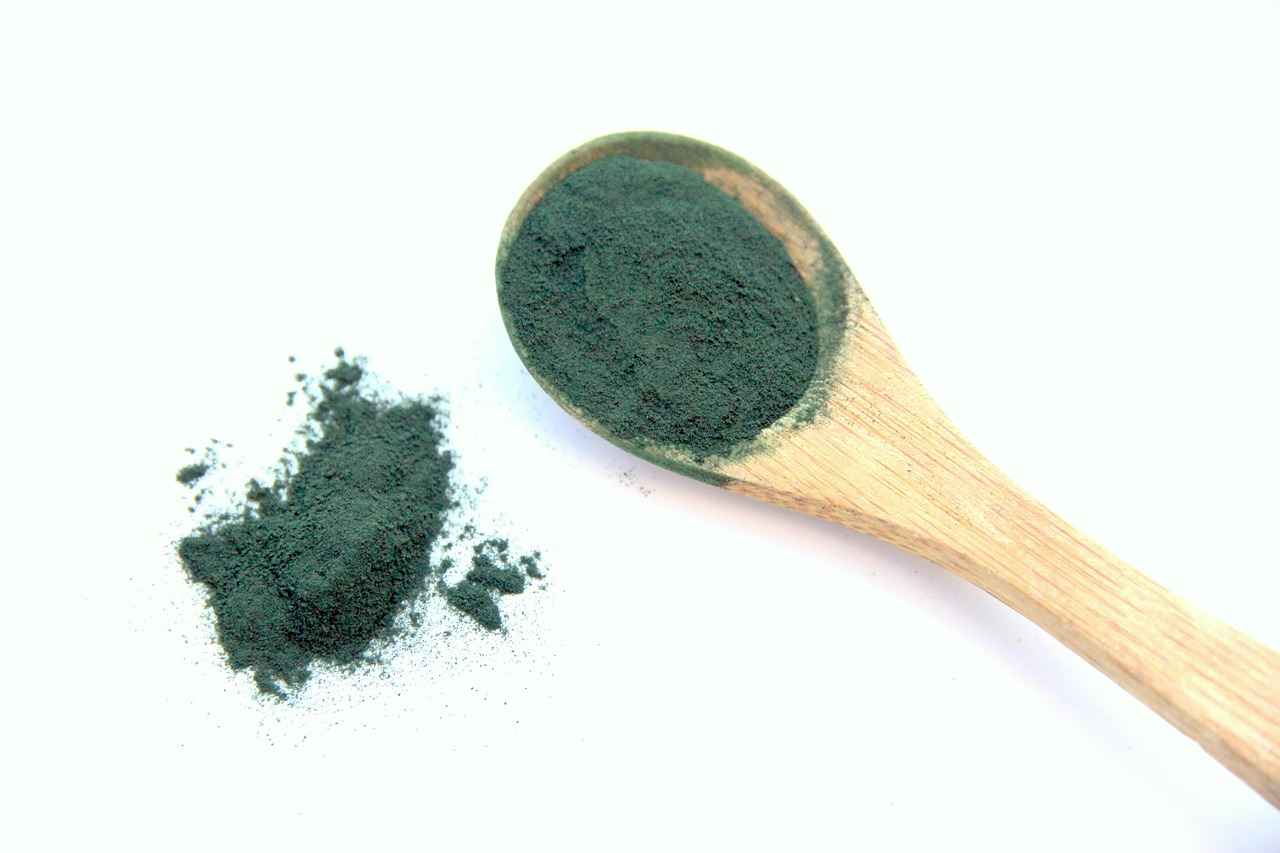
How to Incorporate Spirulina into Your Diet
Incorporating spirulina into your daily routine can be both easy and enjoyable. This superfood offers a myriad of health benefits and can seamlessly fit into various meals and snacks. Here are some creative ways to include spirulina in your diet:
- Smoothies: One of the simplest ways to consume spirulina is by adding it to your smoothies. Whether you prefer a fruit smoothie or a green vegetable blend, just a teaspoon of spirulina powder can enhance the nutritional profile without overpowering the taste. Pair it with ingredients like bananas, spinach, and almond milk for a delicious and healthy treat.
- Juices: If smoothies aren’t your thing, consider mixing spirulina into your favorite juices. It blends well with citrus juices like orange or lemon, providing a refreshing drink that’s packed with vitamins and minerals.
- Energy Bars: Spirulina can be a fantastic addition to homemade energy bars. Combine it with oats, nuts, honey, and dried fruits to create a nutritious snack that’s perfect for pre- or post-workout fuel.
- Soups and Sauces: You can also stir spirulina into soups or sauces. Just add a small amount to your cooking, and it will not only boost the nutrient content but also add a vibrant color.
- Baking: For those who love to bake, consider incorporating spirulina into your recipes. Whether you’re making bread, muffins, or pancakes, a tablespoon of spirulina can enrich your baked goods with essential nutrients.
Remember: When starting with spirulina, it’s best to begin with small amounts to assess your body’s response. Gradually increase your intake as desired. With its versatility, spirulina can easily become a staple in your health-conscious diet.
Spirulina Smoothies
have gained immense popularity among health enthusiasts and nutritionists alike. This vibrant blue-green algae is not only a superfood but also a versatile ingredient that can enhance the flavor and nutritional profile of your favorite smoothies.
When you add spirulina powder to your smoothies, you are not just introducing a unique color; you are also enriching your drink with a powerhouse of nutrients. Spirulina is known for its high protein content, packed with essential amino acids, vitamins, and minerals. This makes it an excellent choice for anyone looking to boost their health.
| Nutrient | Amount per 100g |
|---|---|
| Protein | 60-70g |
| Vitamin B1 (Thiamine) | 2.38 mg |
| Iron | 28.5 mg |
| Calcium | 120 mg |
To make a delicious spirulina smoothie, simply blend your favorite fruits such as bananas, berries, or mangoes with a scoop of spirulina powder. The natural sweetness of the fruits balances the earthy flavor of spirulina, creating a delightful and nutritious drink. You can also add ingredients like spinach, kale, or almond milk to further enhance the smoothie’s nutrient density.
- Tip: Start with a small amount of spirulina powder (around 1 teaspoon) to allow your taste buds to adjust.
- Tip: Pair spirulina with citrus fruits to enhance absorption of nutrients like iron.
Incorporating spirulina into your smoothies is not just a trend; it’s a step towards a healthier lifestyle. With its myriad of health benefits, including antioxidant properties and immune support, spirulina is a fantastic addition to any diet. Whether you are an athlete, a busy professional, or simply someone who wants to eat healthier, spirulina smoothies can be a delicious and convenient way to meet your nutritional needs.
Spirulina Supplements
have gained significant popularity among health enthusiasts and those seeking to improve their overall wellness. As a nutrient-dense superfood, spirulina is available in various forms, including powders, tablets, and capsules, making it accessible and convenient for anyone looking to enhance their diet.
For individuals who are always on the go or prefer a straightforward approach to nutrition, spirulina in tablet or capsule form offers an effortless way to integrate this powerhouse into daily routines. These supplements are particularly appealing for those who may not enjoy the taste of spirulina powder or want to avoid the hassle of measuring and mixing it into food or beverages.
- Convenience: Spirulina tablets and capsules are easy to carry and consume, making them an ideal choice for busy lifestyles.
- Accurate Dosing: Each tablet or capsule typically contains a standardized amount of spirulina, ensuring you receive a consistent dose of nutrients every time.
- No Taste or Odor: Unlike spirulina powder, which can have a strong flavor, capsules and tablets are tasteless, making them suitable for those sensitive to flavors.
When selecting spirulina supplements, it is essential to choose high-quality products from reputable brands. Look for certifications that indicate purity and absence of contaminants, such as heavy metals or harmful bacteria. Additionally, check for third-party testing, which can provide assurance of the product’s efficacy and safety.
Incorporating spirulina supplements into your daily regimen can be an effective way to boost your nutrient intake without altering your diet significantly. Whether you are looking to enhance your energy levels, support your immune system, or simply enjoy the numerous health benefits of this superfood, spirulina supplements are a great option.
In conclusion, spirulina supplements represent a convenient and efficient way to harness the powerful health benefits of this nutrient-dense algae. By choosing the right form and brand, you can easily make spirulina a part of your everyday health routine.
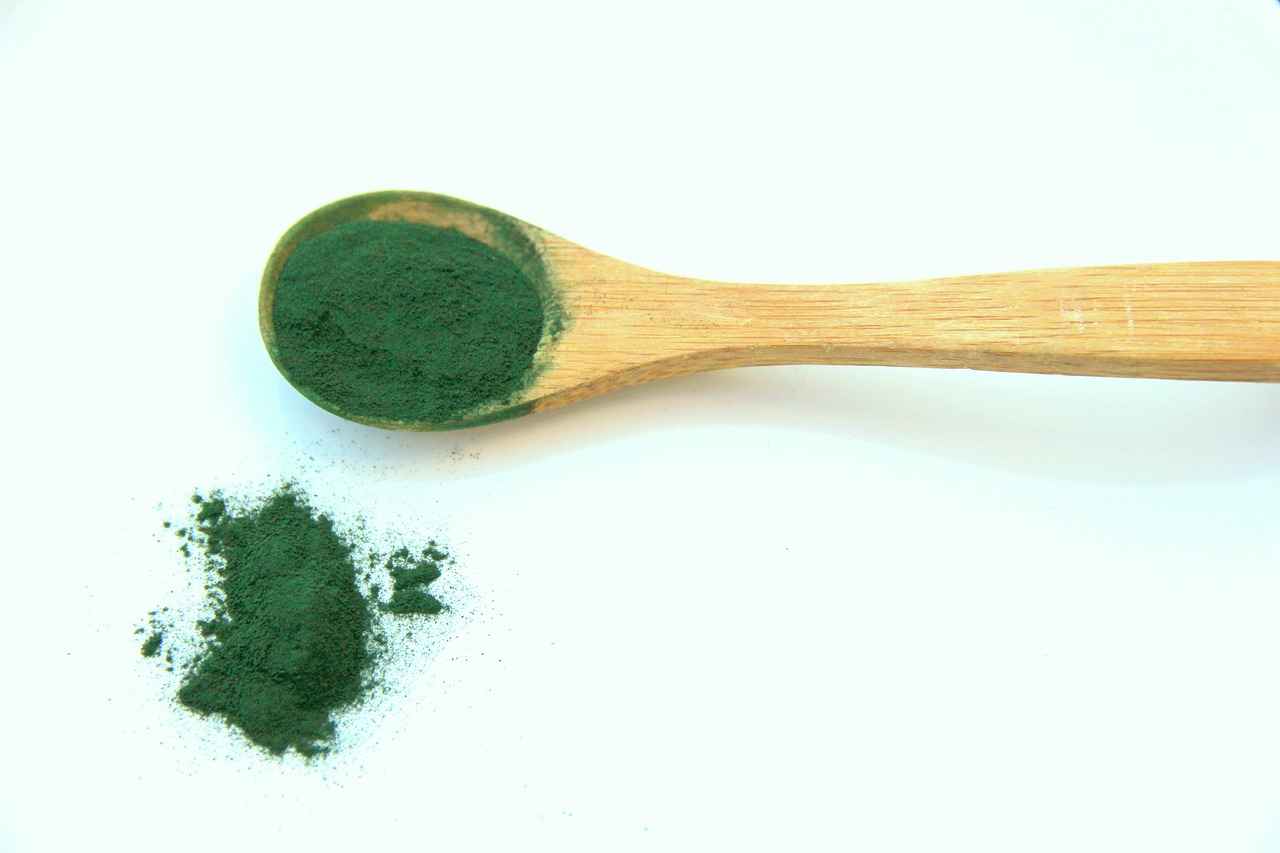
Potential Side Effects of Spirulina
Spirulina has gained popularity as a superfood due to its impressive nutritional profile and health benefits. However, like any supplement, it is important to be aware of potential side effects that some individuals may experience upon consumption.
Understanding Side Effects
While spirulina is generally safe for most people, specific side effects may arise, particularly for those with pre-existing conditions or sensitivities. It is essential to consult with a healthcare provider before introducing any new supplement into your diet.
- Digestive Issues: Some users report mild digestive discomfort, which can include symptoms such as nausea, bloating, or diarrhea. These symptoms are often temporary and may subside as the body adjusts to the supplement.
- Allergic Reactions: A small percentage of individuals may experience allergic reactions to spirulina, leading to symptoms like itching, hives, or difficulty breathing. If any of these symptoms occur, it is crucial to seek medical attention immediately.
- Heavy Metal Contamination: Depending on the source, spirulina can sometimes contain heavy metals or toxins. It is vital to purchase spirulina from reputable suppliers who test their products for purity and safety.
- Interactions with Medications: Spirulina may interact with certain medications, particularly those that affect the immune system. Always discuss with your healthcare provider if you are on medication before starting spirulina.
Mitigating Side Effects
To minimize the risk of side effects, it is advisable to start with a small dose of spirulina and gradually increase it as tolerated. Monitoring your body’s response can help identify any adverse reactions early on.
Conclusion
In summary, while spirulina is a nutrient-rich supplement that offers numerous health benefits, it is important to be aware of potential side effects. Consulting with a healthcare professional and starting with small doses can help ensure a safe and beneficial experience with this superfood.
Allergic Reactions
Allergic Reactions to Spirulina
Spirulina, often celebrated for its remarkable health benefits, is not without its potential side effects. While most individuals can enjoy this nutrient-dense superfood without issues, some may experience allergic reactions upon consumption. Understanding these reactions is crucial for anyone considering adding spirulina to their diet.
Allergic reactions to spirulina can manifest in various ways. The most common symptoms include:
- Itching or rash: This may occur on the skin, indicating an allergic response.
- Difficulty breathing: This is a more severe reaction and requires immediate medical attention.
- Gastrointestinal distress: Symptoms may include nausea, vomiting, or diarrhea.
It is essential for new users of spirulina to monitor their bodies closely after their first few servings. If any of the above symptoms arise, it is advisable to discontinue use and consult with a healthcare professional. Allergies can vary significantly from person to person, and what may be safe for one individual could pose risks for another.
In addition to allergic reactions, some individuals may also experience digestive issues when first incorporating spirulina into their diet. These can include mild discomfort, bloating, or gas. To minimize these effects, it is recommended to start with a small dose and gradually increase it as the body adjusts.
In conclusion, while spirulina can offer numerous health benefits, it is vital to be aware of potential allergic reactions. Always consult with a healthcare provider before beginning any new supplement, especially if you have a history of allergies or sensitivities. By being vigilant and informed, you can safely enjoy the advantages of this powerful superfood.
Digestive Issues
are a common concern for many individuals considering the addition of spirulina to their diet. While spirulina is celebrated for its numerous health benefits, it is essential to be aware of potential side effects, especially regarding digestion.
Some users may experience mild digestive discomfort when they first incorporate spirulina into their routine. Symptoms can include nausea, bloating, and even gas. These effects can be particularly pronounced in those who consume spirulina in large quantities or without prior exposure to similar supplements.
To mitigate these digestive issues, it is advisable to start with small doses. Gradually increasing the amount can help the body adjust to the new nutrient influx. For instance, beginning with a teaspoon of spirulina powder in smoothies or juices can be a gentle introduction before moving to larger servings.
Additionally, ensuring proper hydration and consuming spirulina with food can further alleviate potential discomfort. Pairing spirulina with other nutrient-dense foods can aid in digestion and provide a balanced intake of nutrients.
It is also important to note that individual reactions to spirulina can vary significantly. Some people may experience no adverse effects at all, while others might find it challenging to incorporate into their diets. If you notice persistent digestive issues or any severe reactions, it is crucial to consult with a healthcare professional.
In conclusion, while spirulina offers a wealth of health benefits, being mindful of its potential to cause digestive discomfort is essential. By starting slowly and listening to your body, you can enjoy the advantages of this superfood without the unpleasant side effects.
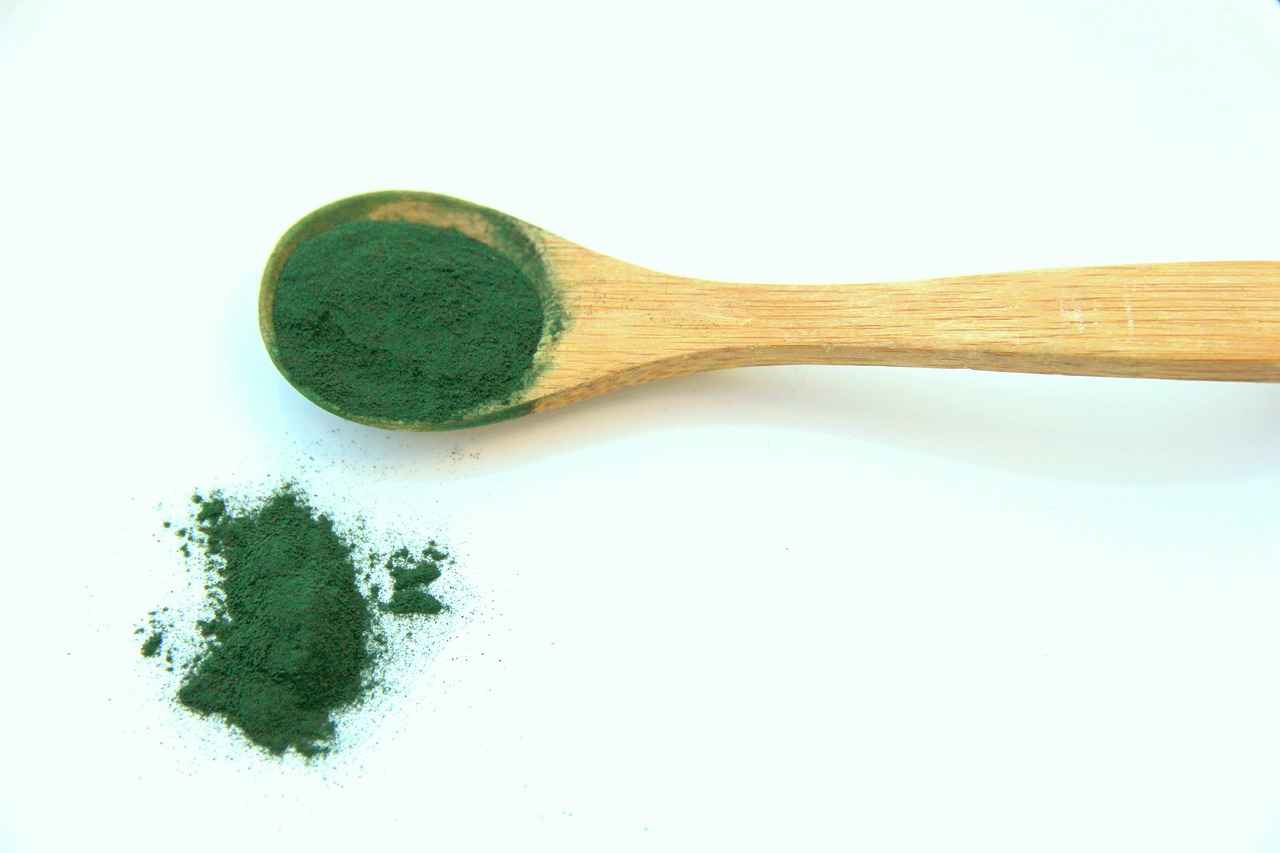
Conclusion: The Superfood of the Future
As we delve into the realm of nutrition and health, spirulina emerges as a remarkable contender, often referred to as the world’s most nutrient-dense food. This blue-green algae is not only rich in essential nutrients but also offers a myriad of health benefits that make it an excellent addition to any diet.
Spirulina’s impressive nutrient density is one of its standout features. It is packed with high-quality protein, containing all essential amino acids, making it a complete protein source. This is particularly beneficial for those following vegetarian or vegan diets, as it provides an alternative to traditional protein sources.
In addition to its protein content, spirulina is also rich in vitamins and minerals, including B vitamins, iron, and magnesium. These nutrients play vital roles in supporting overall health, from boosting energy levels to enhancing immune function. Regular consumption of spirulina has been linked to improved gut health, better cardiovascular health, and even enhanced cognitive function.
Furthermore, spirulina’s antioxidant properties are noteworthy. The presence of phycocyanin, a powerful antioxidant, helps combat oxidative stress and inflammation, contributing to long-term health benefits. This makes spirulina not just a supplement, but a potential ally in the fight against various health issues.
Incorporating spirulina into your diet is simple and versatile. Whether added to smoothies, juices, or taken as a supplement, it provides a convenient way to enhance your nutritional intake. Given its numerous benefits, spirulina is indeed a superfood worth considering for anyone aiming to improve their health.
In conclusion, the combination of spirulina’s nutrient density, health benefits, and ease of incorporation into various diets reinforces its status as a superfood of the future. For health-conscious individuals, spirulina presents a compelling option to support overall well-being.






